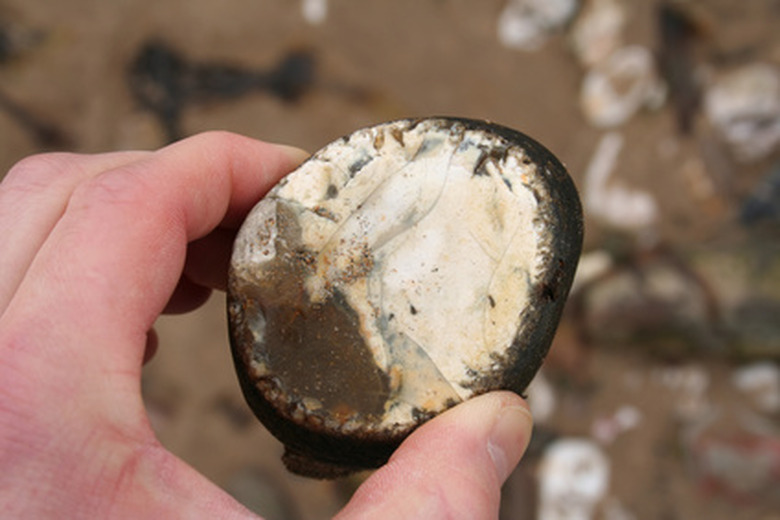The Different Kinds Of Missouri Stone Used For Flint Knapping
Flint knapping, occasionally spelled "flintknapping," and also known as knapping, is the craft of flaking and chipping rocks that fracture conchoidally (in a convex breakage pattern), by striking them skillfully with harder objects, to make tools, building stones and flintlocks. Flint knappers especially favor two different types of Missouri stone, Mozarkite and Burlington Chert. But flint knappers can also find many types of chert, also known as flint, as well as knappable Quartzite in Missouri.
Mozarkite
Mozarkite
Mozarkite, Missouri's official state stone, is an especially hard, multicolored chert (flint), found in the west-central part of the state. It is named for the state's two-letter postal abbreviation (MO), the syllable "zark" that represents the Ozark mountains and the suffix "ite," meaning rock. Like all chert, Mozark is made mostly of micro-crystalline quartz (silica – SiO2) and usually contains chalcedony. Mozarkite is distinguished from other cherts by the its diverse color variations–displaying areas of brown, gray, purple, green, red or pink–and its ability to take on a high polish.
Burlington Chert
Burlington Chert
Burlington chert is often pink, white or light brown and flakes easily, but irregularly, presenting a challenge to modern flint knappers. Archeologists have found many prehistoric artifacts knapped from this material by Missouri's prehistoric peoples.
Other Cherts and Flints
Other Cherts and Flints
Because chert derives from carbonate sedimentary rocks, such as dolomite and limestone, that underlie most of Missouri, knappable cherts and flints can be found almost everywhere in the state. Chemical variations and different formation processes account for the many different colors and patterns of Missouri chert. Flint knappers can work with all Missouri cherts, and geologists and hobbyists often give particular names to cherts with striking or unusual characteristics.
Quartzite
Quartzite
Quartzite is another hard, knappable metamorphic stone found in Missouri. Geological pressure forms quartzite from sandstone, a sedimentary rock made of grains of quarz (silica) and feldspar. Though some types of quartzite were knapped by prehistoric peoples, this stone is not often used by modern flint knappers, because it is difficult to flake accurately.
Cite This Article
MLA
Szile, Theba. "The Different Kinds Of Missouri Stone Used For Flint Knapping" sciencing.com, https://www.sciencing.com/different-stone-used-flint-knapping-7156862/. 24 April 2017.
APA
Szile, Theba. (2017, April 24). The Different Kinds Of Missouri Stone Used For Flint Knapping. sciencing.com. Retrieved from https://www.sciencing.com/different-stone-used-flint-knapping-7156862/
Chicago
Szile, Theba. The Different Kinds Of Missouri Stone Used For Flint Knapping last modified March 24, 2022. https://www.sciencing.com/different-stone-used-flint-knapping-7156862/
